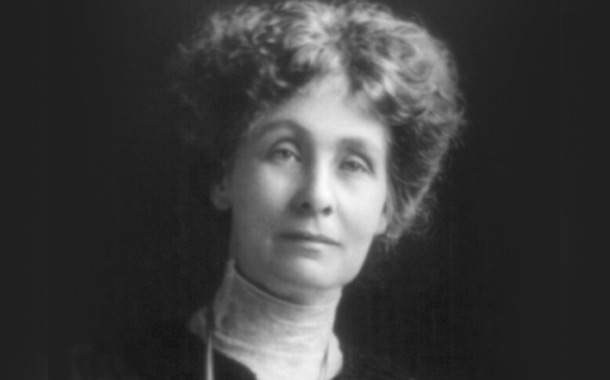<![CDATA[On October 10th 1903, the Woman's Social and Political Union (WPSU) was created in Manchester. The group was the leading activist organisation campaigning for female suffrage in Great Britain between 1903 and 1917. The WPSU was founded by six women, including Emmeline Pankhurst and her daughter Christabel. Led by the Pankhursts, it would be remembered for its militant actions in campaigning for greater gender equality in the UK. Manchester already had a women's suffrage group in 1903, the Manchester Women's Suffrage Committee (MWSC). Christabel Pankhurst had joined the MWSC in 1901, but quickly became disillusioned with the ambitions and effectiveness of the group. Inspired by her daughter's concerns, Emmeline Pankhurst decided to create her own women's suffrage movement. The British suffragettes were closely tied to the Independent Labour Party (ILP), one of the most significant socialist political parties in the UK at the start of the twentieth century. The first role of the WSPU was to put pressure on the ILP to publicly state that women had the right to the same political status as men. This pressure quite literally started at home, as many of the WSPU's members were the wives of ILP politicians. At the beginning the WSPU was limited to using political pressure to achieve its goals. The suffragettes hoped that the election of the Liberal party in 1906, a party traditionally associated with progressive values, would be a turning point for the movement. Herbert Asquith's government failed to make any noticeable progress in enfranchising women though. Consequently, it seemed to the WSPU that reform would never happen if they continued through the traditional channels, and so an increasingly militant approach was adopted. The aggressive and direct nature of the WSPU clearly marked them out from the alternative suffragette movements of the time. Other women's rights groups tended to take a genteel and polite approach to their campaigns, in many ways falling into the trap of personifying the stereotype of women as too delicate for politics, as well as making them easy to ignore. The all action approach of the WSPU however meant they had to be acknowledged, and quickly drew young women to their cause. As time wore on, the WSPU deployed ever more militant tactics, including vandalism and arson. The group tried to disrupt public order where possible, and attack the buildings and institutions of groups it considered in opposition to female enfranchisement. Historians have long since debated just how effective the WSPU was in the eventual awarding of the vote to women in 1918. They have suggested that it actually deterred poorer women, as they became alienated by its blatant aggression and criminality. It has also been suggested that the group lacked appeal to working class women because it only addressed political inequality, and ignored the extreme inequality in pay between men and women. The WSPU could be viewed as nothing more than an organisation that relied on shock tactics to gather attention, but it must be acknowledged that the group succeeded in making the issue of women's rights difficult to ignore.]]>
The Founding of the WSPU
